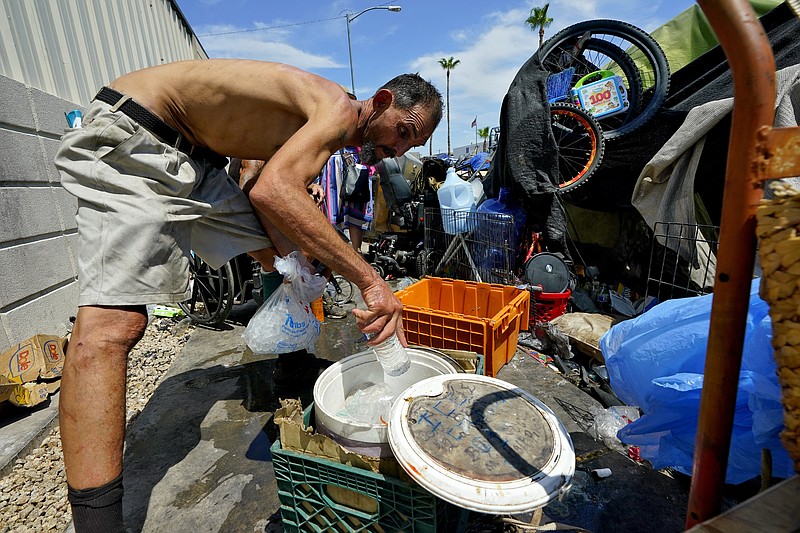PHOENIX -- Homeless people are among those most likely to die in the extreme heat in metro Phoenix. The city saw its longest run of consecutive days of 110 degrees Fahrenheit ever recorded, lasting 31 days until the high hit 106 degrees on Monday.
"It has been a scary situation this year and it's especially scary for our homeless population," said Dr. Geoff Comp, an emergency room physician for Valleywise Health in central Phoenix. "They have a more constant exposure to the heat than most of us."
People living outside are also vulnerable to surface burns from contact with hot metal, concrete or asphalt.
Surgeons at the Arizona Burn Center--Valleywise Health recently warned about burns caused by walking, sitting or falling on outside surfaces reaching up to 180 degrees. The burn center last year saw 85 people admitted with heat-related surface burns for the months of June through August. Seven died.
Record high overnight temperatures persisted above 90 degrees for 16 days straight after finally slipping to 89 degrees on Thursday after a storm Wednesday evening kicked up dust, high winds and a bit of rainfall.
If temperatures don't drop sufficiently after the sun sets, it's hard for people's bodies to cool down, health professionals say, especially those who live in flimsy structures without air conditioning or fans.
"People really need a lot of water and a cooling system to recover overnight," Comp said.
Unhoused people accounted for about 40% of the 425 heat-associated deaths tallied last year in Maricopa County, home to Phoenix, during its hottest summer on record. More than half of the 425 deaths occurred in July and 80% occurred outdoors.
Maricopa County reported Wednesday that as of July 22, there were 25 heat-associated deaths confirmed this year going back to April 11. Another 249 deaths remain under investigation.
Stefon James Dewitt Livengood's shack stands among some 800 people living in tents and other makeshift dwellings outside Arizona's largest temporary shelter. The tents stand close together on concrete sidewalks, and seem to increase the stifling heat from the encampment called "The Zone."
But the location is convenient. Nearby agencies provide social services, food and life-saving water, including the Society of St. Vincent de Paul, the Boys and Girls Club, the YMCA and St. Mary's Food Bank.
Livengood can get breakfast and lunch with faith-based groups in the area before taking a nap in his recliner.
On some hot days, the local transportation agency Valley Metro sends over a couple of empty buses so people can sit for hours in the air conditioning. On other days, Livengood and a few friends walk to a nearby city park and sit in the grass under shade trees outside a public swimming pool.
"It's a definite part of what keeps everybody safe down here in the 'The Zone,'" Livengood said, ticking off the things people distribute: hygiene items, sunscreen, lip balm, hats and cooling rags. "A lot of love is given out here."
Livengood told of a childhood of trauma and neglect. Born in Phoenix and originally named Jesse James Acosta Jr., Livengood spent much of his early years in public housing in a low-income, largely African American neighborhood of south Phoenix. Both of his parents spent time in prison. His mother struggled with addiction, giving birth to a daughter behind bars, and later slipped into homelessness.
"My childhood has been filled with a lot of memories of being bounced around, never really having anything stable," Livengood said.
Livengood was adopted at age 12 by a woman named Denise who legally changed his name to the current one. He and the rest of his adoptive family moved to Alaska, where his adoptive mother died in a traffic accident.
Livengood struggled in school and met the mother of his son. He later left behind the woman and their child to return to Phoenix, a decision he regrets.
Back in the desert, Livengood said he is well aware of the dangers from extreme heat from the pamphlets volunteers pass out with bottles of icy water.
"Yeah, it gets really hot out here, guys," he said. "Stay hydrated, drink plenty of water even when you think you've had a lot of water. And drink more."
